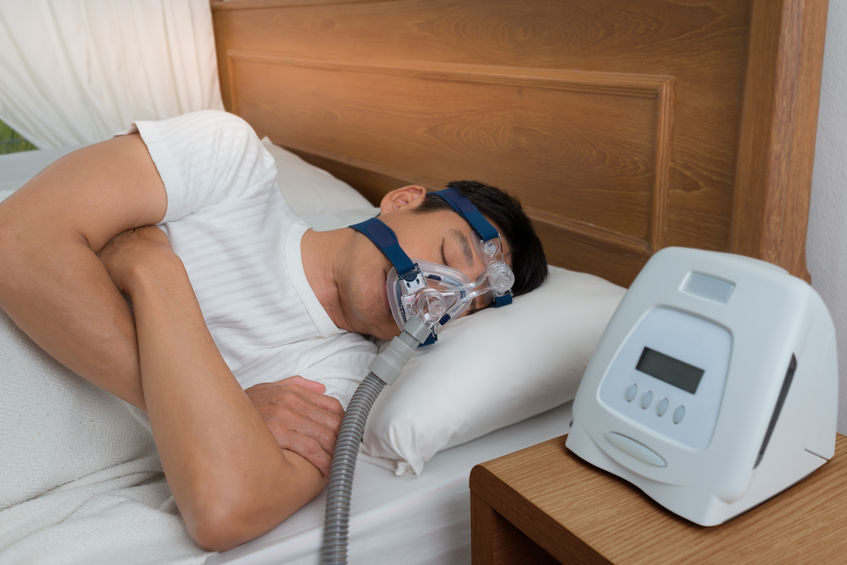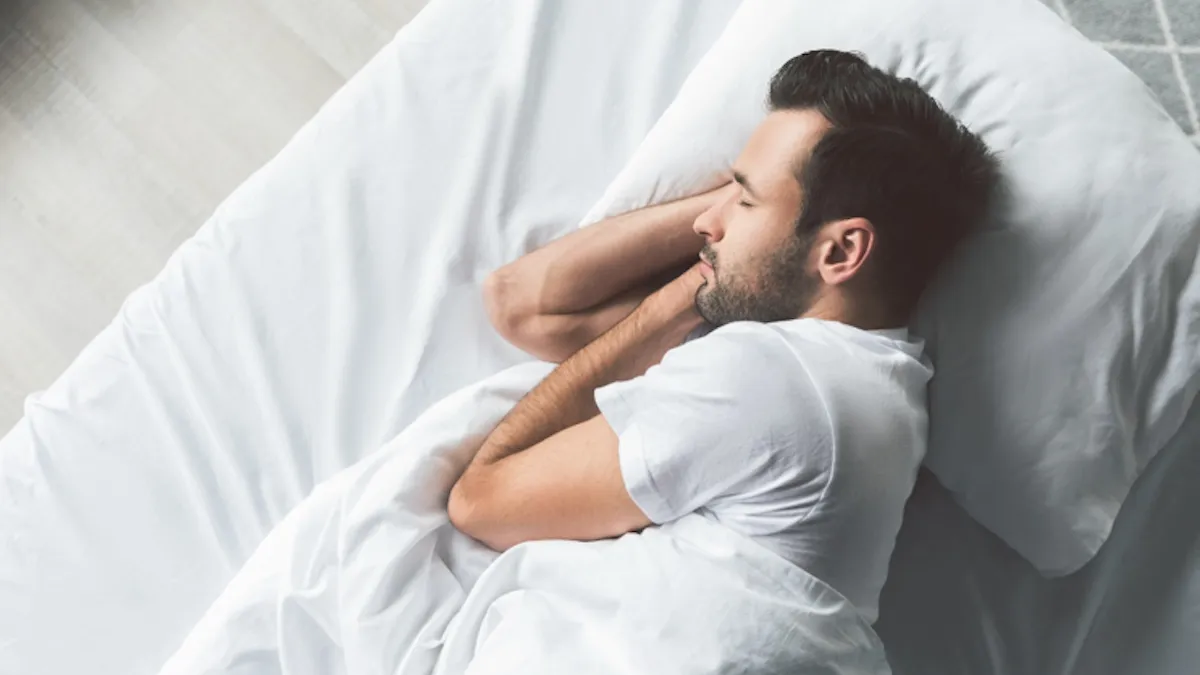Yes, you can claim a sleep study in Phillip through Medicare when referred by a Medicare-enrolled doctor for suspected obstructive sleep apnoea (OSA) or related sleep disorders. Medicare provides coverage for diagnostic sleep services across Australia, including the Phillip ACT area, making sleep disorder assessment accessible to eligible patients.
Obstructive sleep apnoea is the main reason patients need sleep studies. This condition causes breathing interruptions during sleep, leading to poor sleep quality, daytime fatigue, and serious health problems if left untreated. To get diagnosed through Medicare, you need a proper medical referral and must meet specific eligibility criteria.
Residents of Phillip seeking Medicare sleep study coverage can choose between home-based and clinic-based testing options. The process to claim sleep study Phillip starts with a visit to your GP, who can evaluate your symptoms and give you the necessary referral. Medicare’s coverage doesn’t just stop at diagnosis; it also includes treatment options like CPAP therapy. This means there’s a complete pathway from your first assessment all the way through to ongoing management of sleep study Australia services.
What Is a Sleep Study and Why Is It Important?
A sleep study, medically known as polysomnography, monitors your breathing, heart rate, oxygen levels, brain activity, and body movements whilst you sleep. These comprehensive tests can be conducted either at a specialized sleep clinic with overnight monitoring or through home-based testing equipment that records essential data in your own bed.
Sleep disorder testing serves as the primary diagnostic tool for identifying various conditions that disrupt normal sleep patterns. The most frequently diagnosed condition through these studies is obstructive sleep apnea (OSA), where breathing repeatedly stops and starts during sleep due to airway blockage. Sleep studies also detect:
- Central sleep apnea
- Restless leg syndrome
- Narcolepsy
- Periodic limb movement disorder
- REM sleep behavior disorder
- Chronic insomnia with suspected underlying causes
Why accurate diagnosis matters
The obstructive sleep apnea diagnosis obtained through professional sleep disorder testing directly influences treatment success. Without proper testing, healthcare providers cannot determine the severity of your condition, the frequency of breathing interruptions, or how significantly your oxygen levels drop during sleep episodes.
This diagnostic precision enables doctors to:
- Prescribe appropriate CPAP pressure settings tailored to your specific needs
- Identify whether you require additional interventions beyond standard therapy
- Establish baseline measurements to track treatment effectiveness
- Rule out other sleep disorders that might require different approaches
Untreated sleep apnea increases risks of high blood pressure, heart disease, stroke, and type 2 diabetes. The sleep study definition extends beyond simple monitoring—it provides the evidence-based foundation that Medicare requires to approve coverage for ongoing treatment equipment and supplies. Patients who complete proper diagnostic testing access better treatment outcomes and qualify for continued Medicare support throughout their therapy journey.
Who Can Claim a Sleep Study Through Medicare in Phillip?
Can anyone in Phillip access Medicare-funded sleep studies? No—Medicare eligibility for sleep studies requires a valid referral from a Medicare-enrolled doctor who has assessed your symptoms and determined the test is medically necessary.
Patients in Phillip ACT must hold a current Medicare card and present with symptoms suggesting sleep-disordered breathing or related conditions. The referring doctor evaluates your medical history, sleep patterns, and daytime symptoms before deciding whether a sleep study, such as those offered at a sleep medicine center, is clinically appropriate for your situation.
Which doctors can provide referrals?
Several types of Medicare-enrolled doctors can issue referrals for sleep studies:
- General practitioners (GPs) who conduct initial assessments and identify sleep disorder symptoms
- Respiratory physicians specialising in breathing-related sleep conditions
- Ear, nose, and throat (ENT) specialists addressing anatomical factors affecting sleep
- Neurologists investigating sleep disorders with neurological components
The referral must come from a practising physician enrolled in Medicare’s provider network. Your doctor documents the clinical justification for the sleep study, which forms the basis of your Medicare claim. This referral remains valid for 12 months from the date of issue, allowing you time to schedule and complete the assessment at an accredited sleep clinic.
Patients without a referral cannot access Medicare rebates for sleep studies, regardless of symptom severity.
What Types of Sleep Studies Does Medicare Cover?
Medicare covers both home-based sleep test Medicare options and clinic-based polysomnography for diagnosing sleep-related breathing disorders. The primary focus centres on identifying obstructive sleep apnea, though diagnostic services covered by Medicare extend to other sleep disorders when clinically indicated.
Home-based Sleep Testing
Home-based sleep testing represents the most accessible option for many patients in Phillip. These portable monitoring devices record:
- Oxygen saturation levels
- Breathing patterns and airflow
- Heart rate variations
- Body position during sleep
Independent physicians conduct the assessment and interpretation of results, ensuring compliance with Medicare requirements for sleep apnea testing Australia standards.

Clinic-based Polysomnography
Clinic-based polysomnography provides comprehensive monitoring in a sleep laboratory setting. This option becomes necessary when:
- Home testing produces inconclusive results
- Complex sleep disorders require detailed analysis
- Patients present with multiple co-existing conditions
- Initial home tests suggest complications beyond standard OSA
Medicare rebates apply to both testing methods when ordered by a referring doctor for suspected obstructive sleep apnea or related respiratory sleep disorders. The specific Medicare item numbers determine the rebate amount, with different codes applying to Level 1 (home-based) and Level 2 (facility-based) studies. Patients receive detailed reports following either test type, which guide subsequent treatment decisions and potential CPAP therapy recommendations.
How Does the Medicare Claim Process Work for Sleep Studies?
Does the clinic handle Medicare claims automatically, or do patients need to submit paperwork themselves? Most sleep clinics in Phillip process Medicare claims directly on behalf of patients, requiring minimal paperwork from you. The Medicare claim process sleep study begins the moment your test is completed.
After your sleep study, the clinic typically submits claims electronically to Medicare using your details and referral information. Your Medicare card number and valid GP referral are the essential documents needed to initiate this process.
What steps should patients take after receiving their referral?
- Book your appointment with an accredited sleep clinic that accepts Medicare
- Bring your referral letter and Medicare card to the appointment
- Complete the sleep study as directed by the clinic
- Verify billing details with the clinic’s administrative staff
The clinic handles submitting claims for diagnostic tests through the Medicare online claiming system. They process the paperwork for Medicare claims whilst you wait for your results. You’ll receive a statement showing the Medicare benefit paid and any gap payment owed.
Most clinics provide bulk billing options for eligible patients, meaning you pay nothing upfront. If gap fees apply, you’ll be informed before the test. The clinic sends diagnostic reports to your referring doctor, who then discusses results and treatment options during a follow-up consultation.
See Also : Sleep Study Hobart: How to Read Your Test Results Like a Specialist
Does Medicare Cover Treatment After a Sleep Study Diagnosis?
Medicare provides CPAP therapy Medicare coverage once obstructive sleep apnea has been confirmed through a diagnostic sleep study. Patients diagnosed with OSA can access subsidised equipment and supplies under Medicare’s Part B coverage, making essential treatment more affordable.
The coverage begins with a 12-week CPAP therapy trial period. During these initial three months, Medicare covers the rental of CPAP equipment whilst your doctor monitors your response to treatment. This trial period serves as an assessment phase to determine whether CPAP therapy effectively manages your sleep apnea symptoms.
Conditions for continued coverage beyond the trial include:
- Documented face-to-face consultation with your doctor between the 31st and 91st day of therapy
- Evidence that CPAP therapy is benefiting your condition
- Confirmation of regular equipment usage (typically 4+ hours per night for 70% of nights)
- Medical records showing improvement in OSA symptoms
Post-diagnosis treatment Australia extends beyond the initial equipment rental. Medicare continues covering replacement supplies including masks, tubing, filters, and other necessary components. Patients typically pay 20% of the Medicare-approved amount after meeting their Part B deductible, with ongoing support for OSA patients remaining accessible through regular doctor consultations and equipment maintenance covered under the scheme.
Where Can Patients in Phillip Access Sleep Studies and Related Services?
Can I find sleep clinics near Phillip ACT that accept Medicare referrals? Yes, several accredited sleep clinics operate within and around Phillip ACT, providing comprehensive diagnostic services and ongoing treatment support for patients with Medicare referrals.
Phillip ACT sleep clinics offer a range of services tailored to individual sleep disorder needs. These facilities provide specialist consultations for sleep disorders, home-based sleep testing, in-clinic polysomnography, and follow-up care. Many clinics work directly with Medicare-enrolled doctors to streamline the referral and claims process.
How do I book a sleep study with my GP referral?
The booking process follows these steps:
- Obtain your referral – Visit your Medicare-enrolled GP to discuss symptoms and receive a written referral for a sleep study
- Contact a sleep clinic – Choose an accredited facility in or near Phillip ACT that accepts Medicare patients
- Schedule your appointment – The clinic will arrange either a home-based test or in-clinic study based on your doctor’s recommendation
- Attend specialist consultation – Meet with a sleep physician who will review your results and create a treatment plan
Most booking processes for sleep studies with GP referrals take 1-2 weeks from initial contact to test completion. Clinics typically handle Medicare billing directly, reducing administrative burden for patients seeking answers to “Can You Claim a Sleep Study in Phillip Through Medicare?”

What Are the Out-of-Pocket Costs When Using Medicare for Sleep Studies?
Patients in Phillip can expect to pay 20% of the Medicare-approved amount for sleep study services after meeting their Part B deductible. The Part B deductible in Australia applies to diagnostic testing and medical equipment, meaning you’ll need to satisfy this annual threshold before Medicare begins covering its portion of approved costs.
Home-Based Sleep Tests
For home-based sleep tests, the out-of-pocket costs Medicare sleep study patients face typically range from a modest fee to several hundred dollars, depending on the specific diagnostic service and whether the provider bulk bills.
Clinic-Based Polysomnography Studies
Clinic-based polysomnography studies may carry higher patient contributions due to the comprehensive nature of overnight monitoring and specialist interpretation.
Cost Coverage for CPAP Supplies
Cost coverage for CPAP supplies follows a similar structure once treatment begins. During the initial 12-week CPAP therapy trial, patients pay 20% coinsurance for:
- Machine rental fees
- Masks and headgear
- Tubing and filters
- Humidifier chambers
Some sleep clinics in Phillip offer payment plans or bulk billing arrangements that can reduce immediate out-of-pocket expenses. Patients with private health insurance may receive additional rebates that lower their total costs beyond what Medicare provides. Checking with your chosen sleep clinic about their billing practices before booking ensures you understand the exact financial commitment required for both diagnostic testing and subsequent treatment equipment.
Conclusion
Can you claim a sleep study in Phillip through Medicare? Yes, with a proper referral from a Medicare-enrolled doctor, residents can access covered diagnostic services and treatment for obstructive sleep apnea.
Understanding Medicare coverage in Australia begins with speaking to your GP about symptoms and obtaining the necessary referral. Your healthcare provider can guide you through claiming a sleep study in Phillip ACT, ensuring you meet all eligibility requirements and submit documentation correctly.
Early diagnosis transforms lives. Untreated sleep apnea affects cardiovascular health, daily functioning, and quality of life. Medicare’s coverage for both diagnostic testing and CPAP therapy removes financial barriers that might otherwise delay essential care.
Managing OSA treatment costs becomes straightforward when you understand your entitlements. The 20% coinsurance represents a manageable investment in long-term health outcomes, particularly when compared to the risks of leaving sleep disorders undiagnosed.
Take action today. Contact your local GP to discuss your sleep concerns and initiate the referral process. Local sleep clinics in Phillip stand ready to provide comprehensive assessments, ongoing support, and personalised treatment plans that work within Medicare’s framework.
FAQs About Sleep Study in Phillip Through Medicare
A sleep study, or polysomnography, monitors breathing, heart rate, oxygen levels, brain activity, and body movements during sleep. It diagnoses sleep disorders such as obstructive sleep apnea (OSA), narcolepsy, restless leg syndrome, and insomnia, enabling accurate treatment and improved sleep quality.
2. Who can claim a sleep study through Medicare in Phillip ACT?
Patients must have a valid Medicare card and a referral from a Medicare-enrolled doctor. The doctor assesses symptoms like loud snoring, daytime fatigue, or witnessed breathing pauses to determine medical necessity. Without a referral, Medicare rebates are not available.
3. Which doctors can provide referrals for sleep studies?
Referrals can come from:
General Practitioners (GPs)
Respiratory physicians
ENT (Ear, Nose, and Throat) specialists
Neurologists
The referral must be valid for 12 months and include documented clinical justification.
4. What types of sleep studies are covered by Medicare?
Medicare covers:
Home-based sleep testing: Portable devices measuring oxygen levels, breathing patterns, heart rate, and body position.
Clinic-based polysomnography: Comprehensive overnight monitoring in a sleep lab for complex cases or inconclusive home tests.
5. How does the Medicare claim process work for sleep studies?
Most accredited sleep clinics submit Medicare claims directly. Patients need only present their Medicare card and valid referral. Some clinics offer bulk billing, while gap fees may apply. Clinics provide reports to your doctor for follow-up treatment planning.
6. Does Medicare cover treatment after a sleep study diagnosis?
Yes. Medicare subsidises CPAP therapy for confirmed obstructive sleep apnea, beginning with a 12-week trial. Continued coverage requires evidence of treatment benefit, regular use, and follow-up consultations. Medicare also supports replacement CPAP supplies.
7. Where can patients in Phillip access sleep studies and related services?
Several accredited sleep clinics in Phillip ACT provide home-based and in-clinic sleep testing. They accept Medicare referrals, handle claims, and offer follow-up care including CPAP therapy guidance.
8. What are the out-of-pocket costs for Medicare-covered sleep studies?
Patients generally pay 20% of the Medicare-approved amount after meeting the Part B deductible. Home-based tests usually have lower fees than clinic-based polysomnography. CPAP equipment and supplies also carry a 20% coinsurance during the initial trial period.
9. Why is early diagnosis through a sleep study important?
Early detection prevents long-term health complications like high blood pressure, heart disease, stroke, and diabetes. Proper diagnosis ensures personalised treatment, better sleep quality, and improved daytime functioning, while Medicare coverage makes care more accessible.
